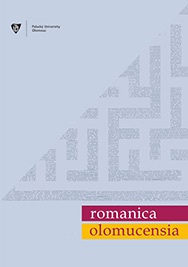À propos de la productivité lexicale actuelle du formant «cyber»
About the current lexical productivity of the word-forming element "cyber"
Author(s): Dagmar KoláříkováSubject(s): Morphology, Lexis, Semantics
Published by: Univerzita Palackého v Olomouci
Keywords: compound words; corpora; cyber; fracto-lexeme; French language; productivity;
Summary/Abstract: Cyber is a neologism based on cybernetics, a term popularized by the American mathematician Norbert Wiener in the 1940s. Wiener derived it from the Greek word kubernētēs, which refers to a pilot or steersman. From that, a slew of words came into existence to describe everything from people’s names to types of crime. This article describes the productivity that cyber has recently achieved in the French language. The corpus that is examined is formed from French dictionaries, lists of neologisms from the French review La Banque des mots, and from the Néoveille Platform. The search results for compounds starting with cyber are obtained by means of automatic detection, manual validation, and linguistic description. The study is also based on the comparable web corpus Aranea. In this paper the notion of a fracto-lexeme is used for the word-forming element cyber. Two of the earliest compound words starting with cyber that came into common usage are cyberspace and cyberpunk, but many other words became particularly popular in the 1990s. The majority of the words that appear after cyber are people’s names; 432 of them were found in the corpus. The study showed that cyber is part of a few thousand compound words, and can be attached to almost anything to make it sound futuristic or technical. This fracto-lexeme is, therefore, firmly rooted in the French language, but some prefer the short “e-” or “online”.
Journal: Romanica Olomucensia
- Issue Year: 31/2019
- Issue No: 1
- Page Range: 37-51
- Page Count: 15
- Language: French

